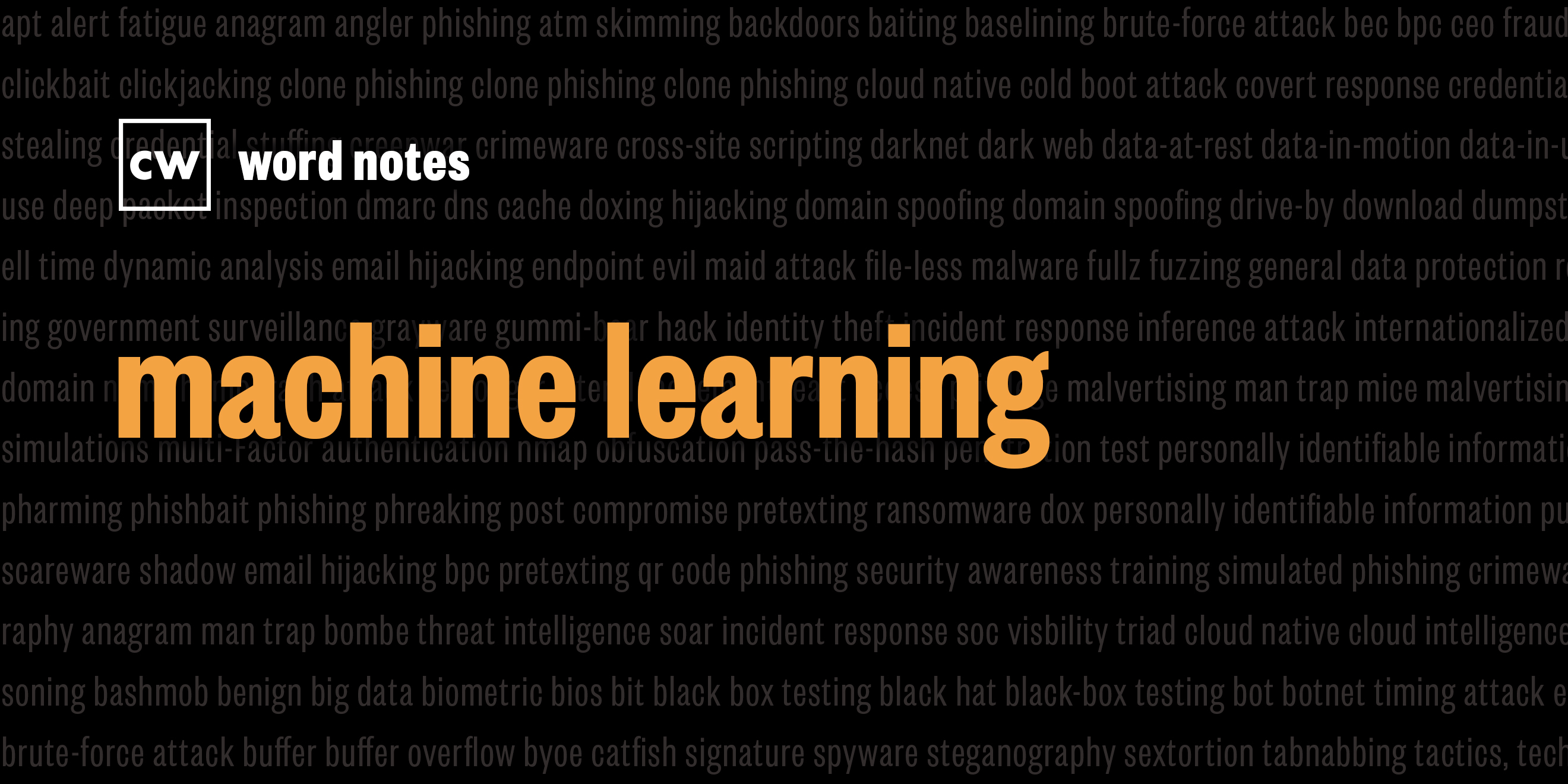
machine learning (noun)
Rick Howard: The word is: machine learning.
Rick Howard: Spelled: machine as in a mechanical apparatus and learning as in the process of acquiring knowledge.
Rick Howard: Definition: A programming technique where the developer doesn't specify each step of the algorithm in code, but instead teaches the algorithm to learn from the experience.
Rick Howard: Example sentence: Machine learning is the superhero who wrestles the big data monster to the ground and makes him divulge security intelligence into distinct categories and predict the next fraudster.
Rick Howard: Origin and context: Also known as pattern recognition, statistical modeling, data mining, knowledge discovery, predictive analytics, data science, adaptive systems, and self-organizing systems. Arthur Samuel coined the term in 1952, when he wrote the first computer learning program. He taught an IBM computer to play a game of checkers and get better every time it played. Roughly 50 years later, computers wouldn't just be able to play checkers, they could beat world champion chess players. Gary Kasparov became the youngest ever undisputed world chess champion in 1985 at the age of 22. But in 1997, IBM's machine learning program called Deep Blue defeated him in a standard time controlled match.
Rick Howard: Susan Polgar, the woman's world chess champion said, "Deep Blue made many moves that were based on understanding chess, on feeling the position. We all thought computers couldn't do that."
Rick Howard: Pedro Domingos, a professor at the University of Washington, writes "During the Battle of Britain, the Royal Air Force held back the Luftwaffe despite being heavily outnumbered. German pilots couldn't understand how, wherever they went, they always ran into the RAF. The British had a secret weapon: radar, which detected the Germans planes well before they crossed into Britain's airspace. Machine learning is like having a radar that sees into the future. Don't just react to your adversary's moves, predict them, and preempt them. If cyber war ever comes to pass, the generals will be human, but the foot soldiers will be algorithms. We need our own bot army and machine learning is like West Point for bots."
Rick Howard: Nerd reference: In his 2014 Ted Talk entitled "The wonderful and terrifying implications of computers that can learn," Jeremy Howard, the founder and deep learning researcher at fast.ai, said this about Arthur Samuel.
Jeremy Howard: Well, it used to be that if you wanted to get a computer to do something new, you would have to program it. Now programming for those of you who haven't done it yourself requires laying out in excruciating detail, every single step that you want the computer to do in order to achieve your goal.
Jeremy Howard: Now, if you want to do something that you don't know how to do yourself, then this is going to be a great challenge. So this was the challenge faced by this man Arthur Samuel. In 1956, he wanted to get this computer to be able to beat him at checkers. How can you write a program, layout in excruciating detail, how to be better than you at checkers?
Jeremy Howard: So he came up with an idea. He had the computer play against itself thousands of times, and learn how to play checkers. And indeed it worked. And in fact, by 1962, this computer had beaten the Connecticut state champion. So Arthur Samuel was the father of machine learning.
Rick Howard: Word notes is written by Nyla Gennaoui, executive produced by Peter Kilpe, and edited by John Petrik and me, Rick Howard. The mix, sound design, and original music have all been crafted by the ridiculously talented Elliott Peltzman. Thanks for listening everybody.

